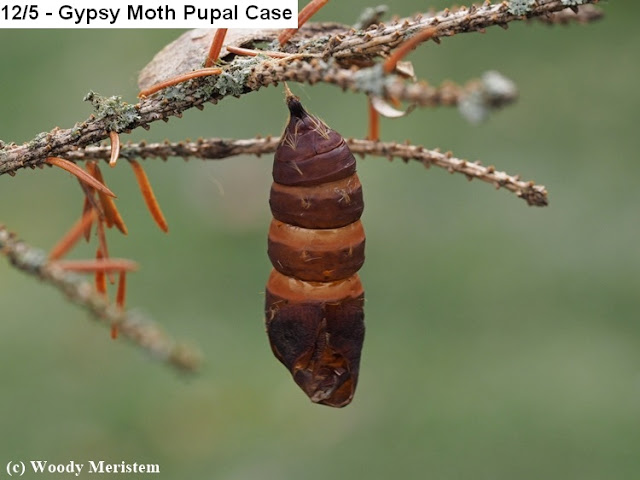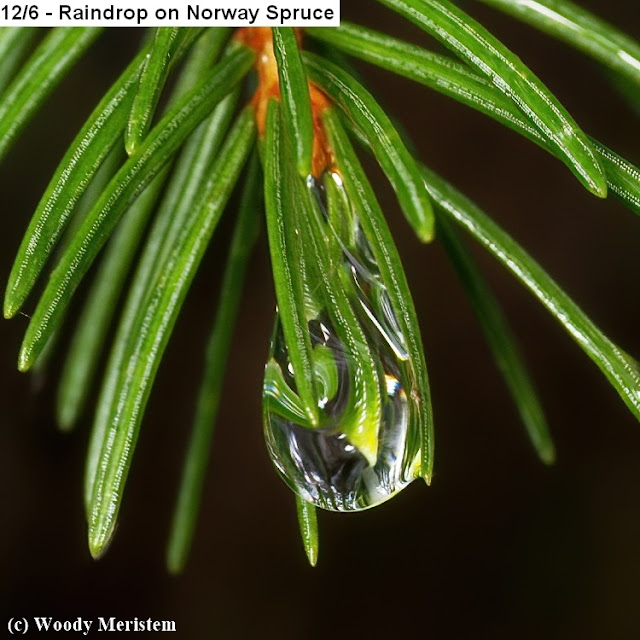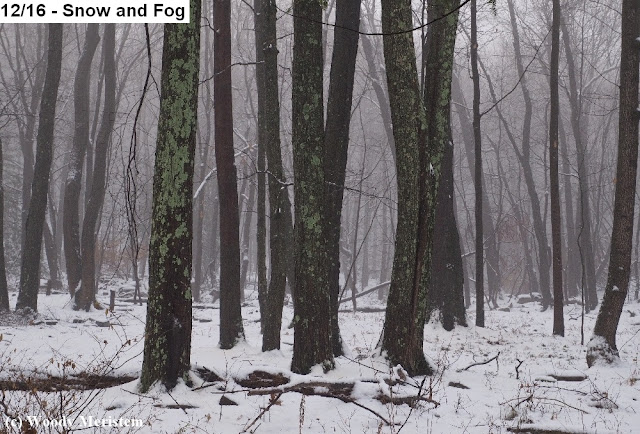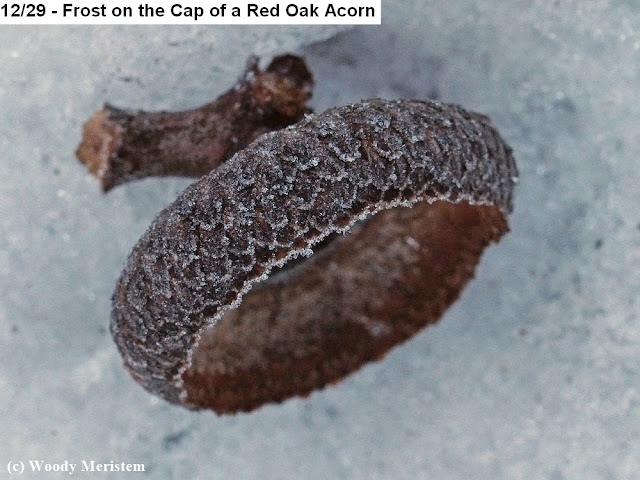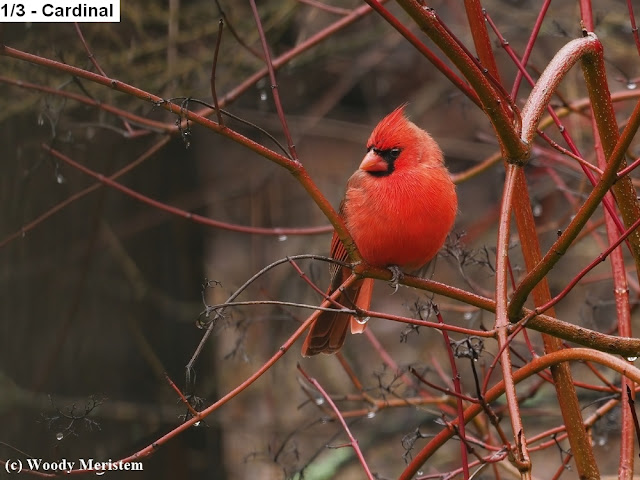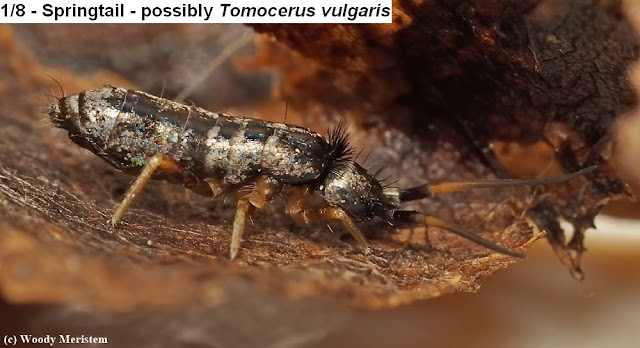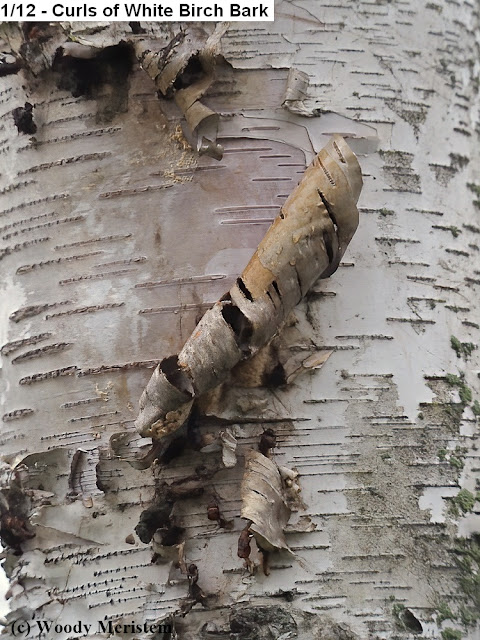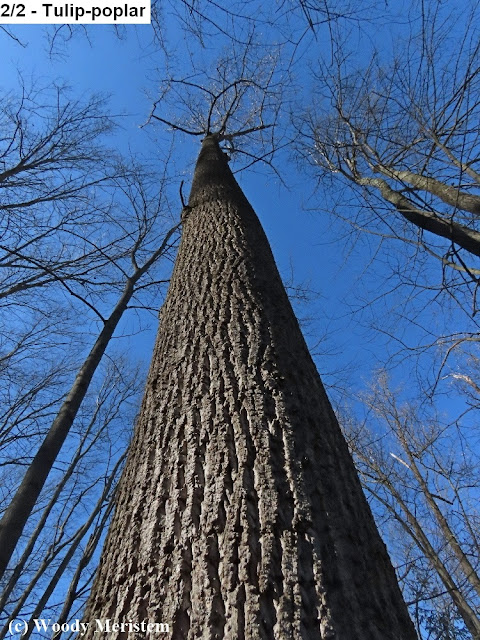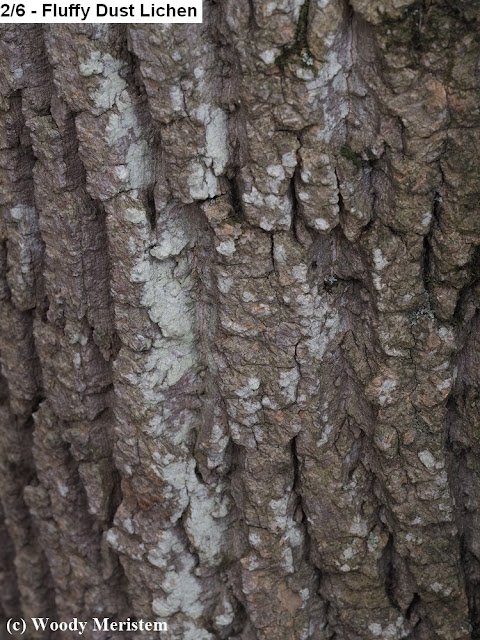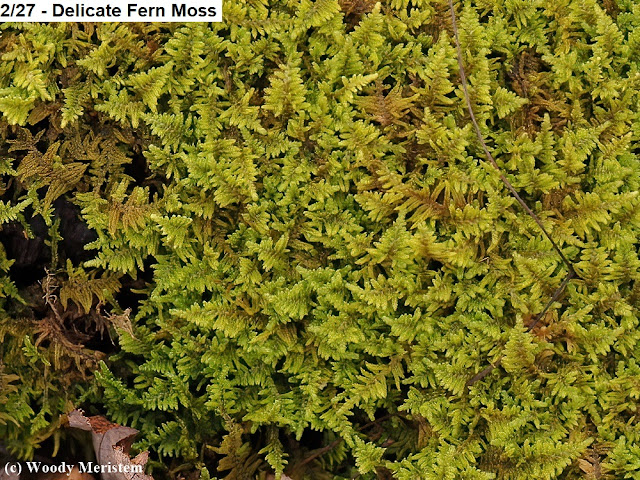The
north wind doth
blow,
And
we shall have snow
Old Nursery Rhyme
The first line of that rhyme could easily be changed to March winds doth blow for on another March morning at another marsh the wind was absolutely howling, and the sky was dark gray.
This time I went to a large natural wetland that’s part emergent vegetation, part cattail marsh and part shrub wetland. The portion of the wetland where I chose to spend the morning is shaped like a “Y” and it was on the point between the two arms of the Y where I sat. To the left was the emergent wetland, to the right was shrub wetland and at the distant base of the Y was the cattail marsh.
On the point is a large arbor created when vines grew over a patch of shrubby willow, the vines make a superb natural blind. I'd previously decided to sit there where, in my camouflage garb, I'd be virtually invisible to any birds in or over the wetland.
On the way in, the first waterfowl I saw were a handful of pintails in the area of wetland that has emergent vegetation during the growing season. Being quite wary, the pintails weren’t about to tolerate me walking past and off they went –
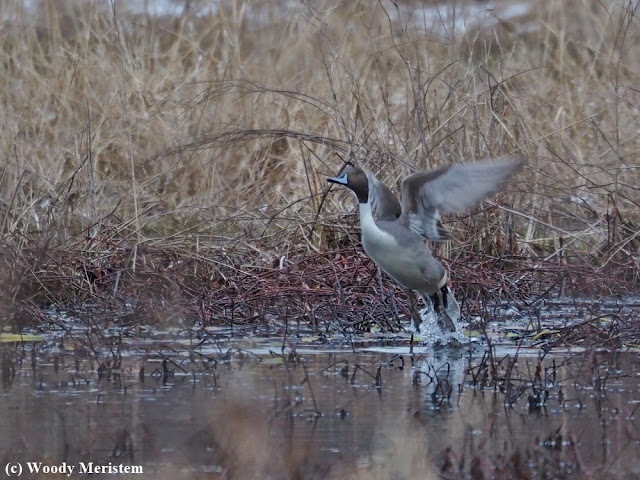 Once
I was well hidden and had been there for about half an hour a number
of wood ducks flew over and then landed
among
the shrubs in
the water
on the other side of the point of land. Male wood ducks are the most
colorful of our native ducks while the females, like the females of
all species of wild ducks, are very well camouflaged –
Once
I was well hidden and had been there for about half an hour a number
of wood ducks flew over and then landed
among
the shrubs in
the water
on the other side of the point of land. Male wood ducks are the most
colorful of our native ducks while the females, like the females of
all species of wild ducks, are very well camouflaged –
Meanwhile back in the more open area a few northern shovelers had also landed –
Through the binoculars I was watching a mass of waterfowl (mallards, pintails, black ducks and green-winged teal) far off near the cattails –
Suddenly the entire mass of birds took off heading my way –
Something scared them, but what was it? Ah-ha! there it was, an immature bald eagle. By the time I saw the eagle it was long past the area where the mass of ducks had been and almost lost against the snow-clad ridge to the south of the marsh –
While waiting for the ducks to return I looked out toward the large part of the marsh in the far distance and saw a male harrier, the bird sometimes called the “gray ghost” –
Apparently the ducks didn’t perceive the harrier as a threat because it was still swooping and fighting the wind over the wetland as the ducks began to return, the first to land nearby was a pair of blue-winged teal –
They were followed by a number of wood ducks –
Soon it was time for me to leave and, in keeping with the returning ducks, I thought: “I’ll be back”.










.JPG)
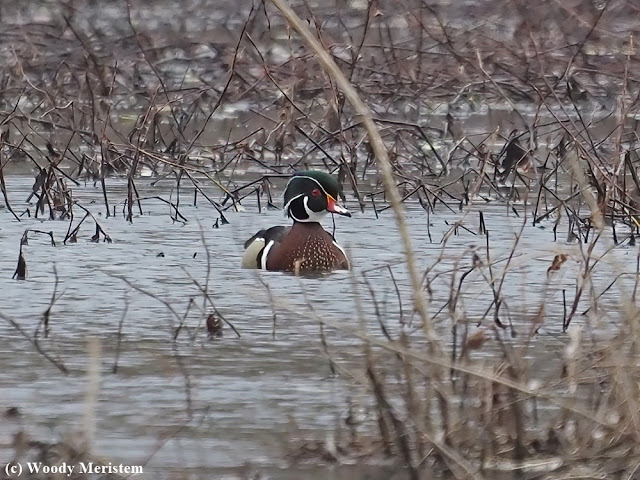
.JPG)

.JPG)

.JPG)
.JPG)
.JPG)
.JPG)
.JPG)
.JPG)
.JPG)
.JPG)



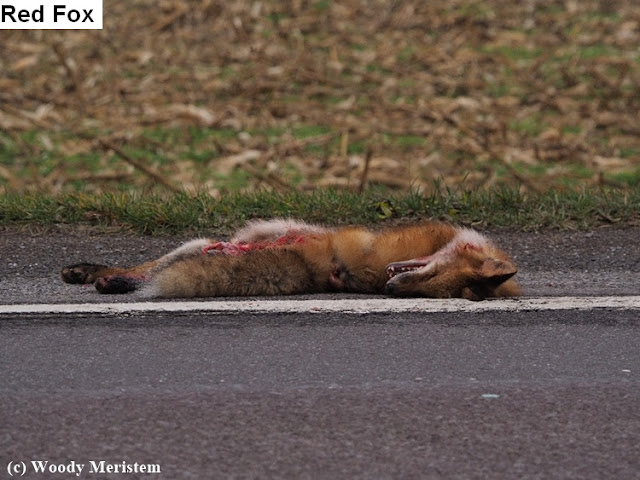
.jpg)
%20-%20Roadkill.JPG)

.JPG)
.JPG)
.JPG)





